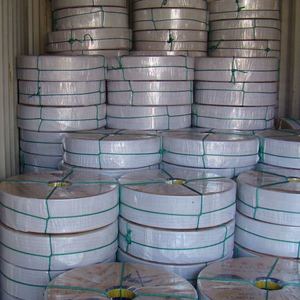
All categories
Featured selections
Trade Assurance
Buyer Central
Help Center
Get the app
Become a supplier

(10944 products available)







































A 4-inch flexible pipe is a duct used in plumbing systems that transport liquids, gases, or air. It is flexible, allowing it to bend and curve around obstacles without breaking or leaking. This pipe is used in different industries, including construction, automotive, and aerospace. There are different types of 4-inch flexible pipes, as discussed below:
Flexible Metal Hoses
These are thin-walled hoses that consist of a tube and two end fittings. The tube is usually made of stainless steel, which can be corrugated or welded. Flexible metal hoses are commonly used in plumbing applications, especially for water and liquid. They are preferred because they are durable and resistant to high temperatures and pressure. These pipes can be used in different environments, whether corrosive or not. They are also popular in the automotive industry, especially in exhaust systems.
Ducting
Ducting is a type of 4-inch flexible plastic pipe. It is lightweight and comes in different diameters and lengths. Ducting is made from various materials, such as PVC, polyurethane, and nylon. PVC ducting is more common and popular because it is cheaper and more resistant to wear and tear. This type of ducting is used in HVAC systems to transport air. It is also used in the electronic industry for cable insulation. Nylon and polyurethane ducting are mostly used in the aerospace and automotive industry. They are preferred because they are lightweight and highly flexible.
Flexible Rubber Hoses
These flexible pipes are mostly made of rubber, but they can also be made of other materials like silicone. They are preferred due to their lightweight and highly flexible nature. This allows them to bend around obstacles easily. Flexible rubber hoses are mostly used for transmitting water in plumbing systems. They are also widely used in irrigation systems to transport water to farms and agricultural lands.
Flexible plumbing pipes, especially the 4-inch flexible drainage pipe, have gained massive popularity in the plumbing industry due to their numerous applications and advantages. From helping transport water to different locations to their use in HVAC systems, these pipes have various functions. Their features also make them an ideal choice for many applications. These features include:
Flexible pipes allow for quick and easy connections over long distances and can be used in various scenarios, including:
Material:
First, consider the flexible pipe material and their applications. Consider the environment, such as temperature, exposure to chemicals, and whether the pipe needs to be UV-resistant or corrosion-resistant. Flexible PVC pipes are popular due to their affordability, versatility, and ease of use. They're suitable for irrigation systems, drainage, and electrical wiring protection. Flexible polyethylene pipes are more durable and resistant to UV light and are typically used for outdoor applications like water supply and drainage. Flexible metal pipes are more robust, resistant to kinking, and ideal for applications involving heat, such as HVAC systems and exhaust. They're also used in gas lines.
Diameter and length:
When purchasing flexible plumbing pipes, it's essential to consider factors like the diameter and length needed for a specific project. These pipes come in various sizes, and choosing the correct diameter is crucial to ensure optimal fluid or gas flow. Consider the connection points and fittings required for installation. Different diameters may require specific fittings, so it's essential to check compatibility before purchasing. Also, consider flexible pipes in 4-inch diameter and other sizes as they can be cut to the desired length during installation. However, it's essential to purchase the correct size first, as some pipes may become less effective if shortened.
Compatibility:
Consider the compatibility of the flexible pipe with the fluids or gases it will transport. Different materials have varying resistance levels to chemicals, so choose a pipe material compatible with the transmitted substance to prevent leaks or bursts. Consider the pipe's connection points and fittings during installation. Different flexible pipes require specific fittings, so it's essential to check compatibility before purchasing to ensure a successful installation.
Brand reputation and reviews:
It's essential to check online reviews and testimonials to gauge the reputation of flexible pipe brands before purchasing. Look for reviews that highlight specific experiences regarding the pipe's durability, flexibility, and overall performance. Consider the type of project and the conditions the pipe will be exposed to. Different flexible pipes are designed for various purposes, such as plumbing, irrigation, or drainage. Consider the project's budget, as prices vary depending on the material and brand. While it's tempting to go for the cheapest option, prioritize quality and durability to avoid costly repairs down the line.
Q1: What are the most common applications for a 4-inch flexible pipe?
A1: This includes drainage, irrigation, and venting. These applications require the transport of liquids, gases, or air, and a 4-inch flexible pipe is commonly used.
Q2: Is a 4-inch flexible pipe durable?
A2: Yes, a 4-inch flexible pipe is durable. It is made from materials like polyethylene and PVC, which are strong and resistant to wear and tear. These pipes can withstand repeated bending and are not easily damaged when bent or twisted.
Q3: Can a 4-inch flexible pipe be used for potable water?
A3: Yes, a 4-inch flexible pipe can be used for potable water. However, it must be manufactured from materials approved for drinking water, such as polyethylene.
Q4: Is a 4-inch flexible pipe UV resistant?
A4: Some 4-inch flexible pipes are UV resistant. This includes those made from polyethylene. UV-resistant pipes can be used in areas exposed to direct sunlight without being damaged.
Q5: Can a 4-inch flexible pipe be recycled?
A5: Most flexible 4-inch pipes are recyclable. This includes those made from polyethylene and PVC. The recycled material is used to manufacture other products or pipes.